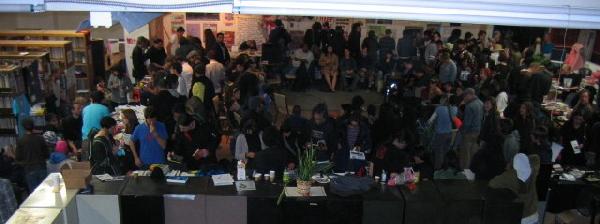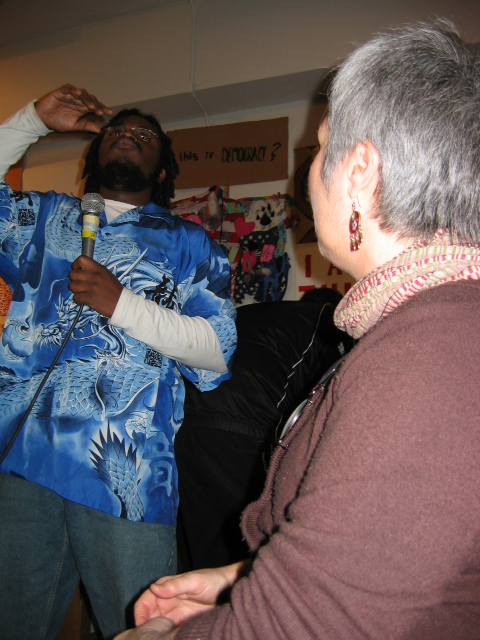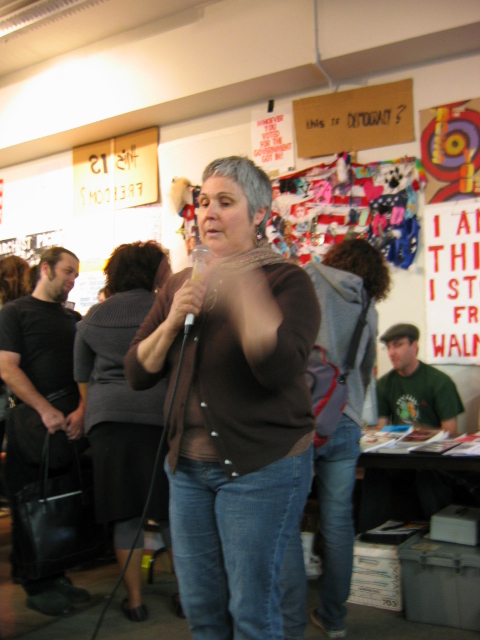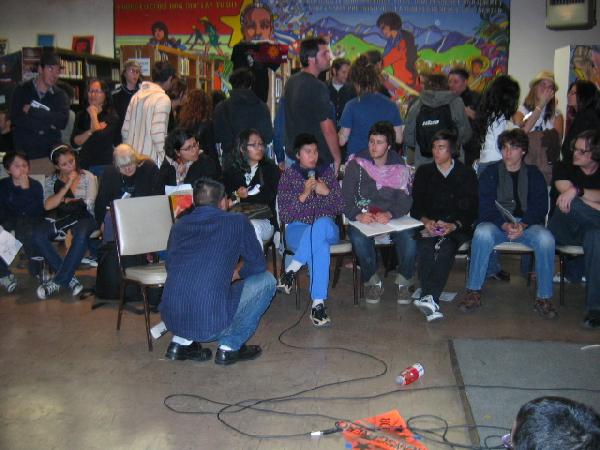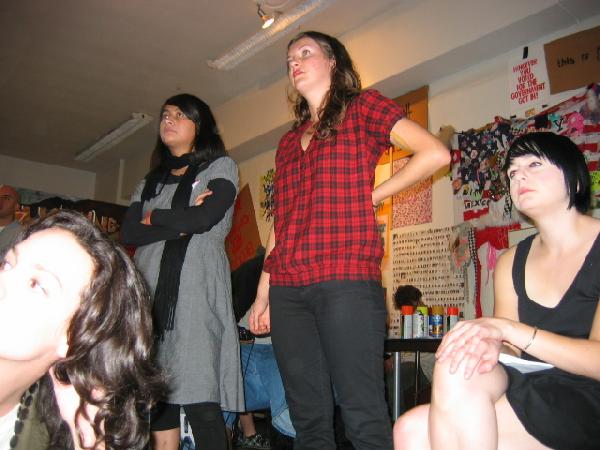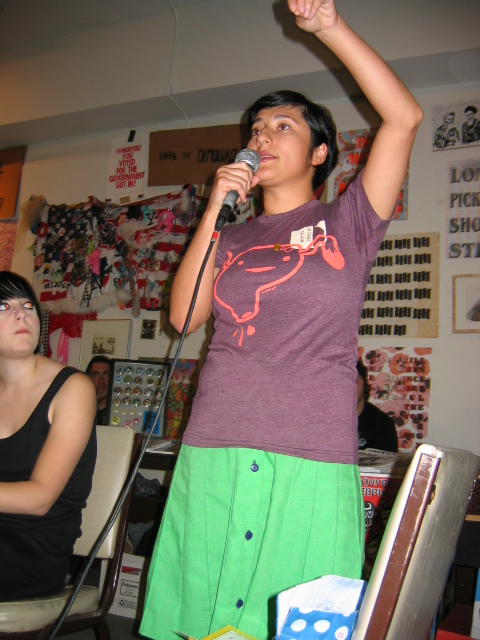| About Us | Contact Us | Calendar | Publish | RSS |
|---|
|
Features • latest news • best of news • syndication • commentary Feature Categories IMC Network:
Original Citieswww.indymedia.org africa: ambazonia canarias estrecho / madiaq kenya nigeria south africa canada: hamilton london, ontario maritimes montreal ontario ottawa quebec thunder bay vancouver victoria windsor winnipeg east asia: burma jakarta japan korea manila qc europe: abruzzo alacant andorra antwerpen armenia athens austria barcelona belarus belgium belgrade bristol brussels bulgaria calabria croatia cyprus emilia-romagna estrecho / madiaq euskal herria galiza germany grenoble hungary ireland istanbul italy la plana liege liguria lille linksunten lombardia london madrid malta marseille nantes napoli netherlands nice northern england norway oost-vlaanderen paris/Île-de-france patras piemonte poland portugal roma romania russia saint-petersburg scotland sverige switzerland thessaloniki torun toscana toulouse ukraine united kingdom valencia latin america: argentina bolivia chiapas chile chile sur cmi brasil colombia ecuador mexico peru puerto rico qollasuyu rosario santiago tijuana uruguay valparaiso venezuela venezuela oceania: adelaide aotearoa brisbane burma darwin jakarta manila melbourne perth qc sydney south asia: india mumbai united states: arizona arkansas asheville atlanta austin baltimore big muddy binghamton boston buffalo charlottesville chicago cleveland colorado columbus dc hawaii houston hudson mohawk kansas city la madison maine miami michigan milwaukee minneapolis/st. paul new hampshire new jersey new mexico new orleans north carolina north texas nyc oklahoma philadelphia pittsburgh portland richmond rochester rogue valley saint louis san diego san francisco san francisco bay area santa barbara santa cruz, ca sarasota seattle tampa bay tennessee urbana-champaign vermont western mass worcester west asia: armenia beirut israel palestine process: fbi/legal updates mailing lists process & imc docs tech volunteer projects: print radio satellite tv video regions: oceania united states topics: biotechSurviving Citieswww.indymedia.org africa: canada: quebec east asia: japan europe: athens barcelona belgium bristol brussels cyprus germany grenoble ireland istanbul lille linksunten nantes netherlands norway portugal united kingdom latin america: argentina cmi brasil rosario oceania: aotearoa united states: austin big muddy binghamton boston chicago columbus la michigan nyc portland rochester saint louis san diego san francisco bay area santa cruz, ca tennessee urbana-champaign worcester west asia: palestine process: fbi/legal updates process & imc docs projects: radio satellite tv |
printable version
- js reader version
- view hidden posts
- tags and related articles
First Annual Los Angeles Anarchist Bookfair: A Beginning Marker of Resistenceby Rockero Wednesday, Dec. 17, 2008 at 3:40 AMrockero420@yahoo.com Saturday, December 13, 2008 LOS ANGELES - The organizers of the first annual Los Angeles Anarchist Bookfair sent out a call for "dreamers, fighters, organizers, and rebels to come, meet, strategize, learn from each other, get books, attend workshops, participate, and join the movement." And despite the state's efforts to squelch our efforts, come they did--more than 700 people, mostly from the greater Los Angeles area, although some came from as far as San Diego, the Bay Area, Oregon, New York, and even Canada, to participate in this herstory-making event. Plans for this bookfair have been in the works for more than a year, but organizing really started heating up in about September, when an open invitation was made to anyone interested in helping to organize the event. One of the plans hatched--for a benefit concert to help defray the costs of travel for invited speakers--was mercilessly raided by an LAPD squadron on the pretense that they were looking for a shoplifter. The cops violently entered the venue without a warrant and demanded that we prove that we had permission to be there. They targeted some of the main organizers for arrest, outrageously holding them for three days on bogus charges of "resisting or delaying a police officer." (See LAIMC articles "LAPD suppresses radical art space" by tu_kuñ(A)'o and "Police Raid of Anarchist Event," attributed to johnaimani, for more detailed reports.)
But this Saturday we were able to transcend the harassment to convoke the community, share ideas, feed each other, challenge one another to grow in our skills, and strategize about how to create a better world, starting right here in Los Angeles. Vendors began arriving at the Southern California Library before ten to begin setting their tables up around the perimeter of the main room, but the day truly began at about eleven with a ceremony by Danza Cuauhtémoc, who sanctified the space through dance. They reminded us all that the land upon which we were standing was once and always will be indigenous. With this consciousness, people eagerly began lining up to make their five-dollar entrance donation and begin looking at the books, zines, and pamphlets and start attending the talks and workshops. I went to the workshop on Marxist economics, the financial crisis, and the current anarchist uprisings in Greece and found it to be the perfect way to start the day. We sat on the floor until the room was full, and then crowded around the open door. Although it was a space where the words of older men dominated, many people participated in the discussion. John Imani began with an explanation of the crisis that was meticulously-reasoned and solidly grounded in history and the present, and urged action from all revolutionaries. He enjoined us to "participate in the class struggle, articulate and experiment with models of non-hierarchical institution building so as to replace the hierarchical institutions of capitalism, and study Marx’s economics." The facilitator then asked a man with close ties to Greece to explain the actions of the autonomist youth there and why they receive so much support from mainstream Greek society. Then a member of Modesto Anarcho reported on responses to mass foreclosures in California's Central Valley, squatting, and his organization's efforts to support squatters. We discussed the sit-in at Republic Doors and Windows in Chicago, the current state of the Left, questioned where to go from here, and attempted to answer that question. Some examples: "What we need to think of is a society based on the common ownership of all, not some, not the major means, all, the means of wealth production and distribution." "One of the main things that we need is alternatives, ans this is a good example, the Zapatista movement. They're having these proposals about how to be owners of their own work, so I belong to a collective, it's called Colectivo Tonantzín, and we're passing out that word. Just an example, coffee is just one thing, that we could work with like that, but we can do it with the other products: clothes, corn..." "We've been dependent on this artificial system we've been stuck in for many many years. We just have to remember who we are as human beings, and communities will be the ones who decide what they need." "Individuals have to look within themselves and see how much of the debris of the larger culture they're willing to jettison. You can't carry around the weight of the present culture with its privileges, depending on which part of the world you happened to have had the fortune or misfortune of being born in and then talk about wanting to bring about social change unless you're going to be willing to give up something that may be required of you to make that change possible. It has to start with the individual and their commitment to make their own lives reflect the change they avow." While I was listening to the talk on economics, other people were upstairs at a talk on the militarization of the US-Mexico border with José Palafox and Budge, and yet another group was in the main room discussing local histories, including the history of our hosting facility of the SoCal Library and urban Zapatismo as practiced in LA. During the next hour, the main room was filled with spectators eager to learn about Latin American movements. Pedro spoke about Brazilian anarchism, quickly giving an overview of the political history of the entire South American continent, and then Sirena went into detail about the lived experiences of Argentinian anarchists. Finally, Sara spoke on Bolivian and Chilean anarchism, especially that of the womens' groups. The panelists entertained questions, including one on anarcho-syndicalism in Argentina ("The anarchists were the ones who, of course, would radicalize the whole movement when it started to get co-opted by the liberal tendency that was interested mostly in going toward the elections,") and the extent to which the administration of Evo Morales has genuinely benefited the Bolivian people, "So to put Evo in power, sure, it can pass a lot of social improvements, but then they started questioning themselves: How much power can we really build, if only people can understand that this can get weaker at the top as we move stronger at the bottom." During the talk on Latin American movements, some members of the guerrilla chapter of CopWatch-LA screened their documentary "We're Still Here, We Never Left," on the police brutality in MacArthur Park last May Day. They also gave a workshop on how to start a CopWatch, for those wanting to do so in their own areas. By this time people were starting to get pretty hungry, and were overjoyed by the arrival of Food not Bombs, who provided vegan lunch. Unfortunately, attendance was so high that it ran out. Fortunately, a compañero who is a vegan chef donated a hundred tamales and a pot of Oaxacan mole. Those who were still hungry gladly made donations to get their hands on them. Following the talk on Latin America, the Anarchist/Autonomous/Angry people of color (APOC) met in the reading room, gently asking that their white allies respect the POC-only space. I went upstairs for the open-source software/indymedia workshop, where we talked about the importance of both institutions and shared the skills and software that facilitate the dissemination of media access. Outside in the garden, a compañera was leading a dating game that acknowledged that gender is not a simple dichotomy. The next hour featured one of the most highly-anticipated panels: ABCs of Anarchism and Anarchist Tendencies. Tendencies represented included autonomism, anarcha-feminism, anarcho-syndicalism, anarcho-punk, anarcho-communism, and green anarchism, whose exponent, John Zerzan, had flown in from Oregon to sit on the panel. This panel, too, entertained questions and listened to comments from the audience. One of Zerzan's comments called many of the pro-labor tendencies into question when he asked, in response to excitement about reclamation of factories, "What if, rather than being part of the solution, factories are actually the problem?" Meanwhile, Harjit Singh Gill spoke on nationalism in India's Punjab, and three other compañeros lead a discussion on "creating anarchist think tanks." The workshops scheduled for the four o'clock hour, which by this time had been pushed to 4:45, included "Queer and trans communities of color," led by volunteers from Q-Team. While not a self-identified anarchist group, Q-Team does a lot of positive work for and with youth in the community, especially on decolonization, and makes use of queer theory, which is itself quite revolutionary. However, rather than speaking on specific topics, the facilitators sought to open a space where dialogue could take place and as many people as possible could speak. They began by rearranging the chairs in the main room into a large circle. Topics of discussion included the recent efforts to oppose the homophobic proposition 8, gay marriage, and whether or not the struggle for marriage is or should be a priority among the queer and trans people of color community. One member of Q-Team mentioned that one strategy they have found to be successful was helping people reconnect with their spirituality, which raised the ire of some anti-religion fundamentalists. The issue of religion diverted the discussion from its productive path. Two individuals in particular, both of whom appeared to be white and who did not identify as queer during the discussion, talked about the need to "bring atheism to communities of color," going on to blame those communities for the passage of prop 8. Many people in the circle were offended and felt the need to respond, which led to a debate between the two antagonizers and the rest of the crowd. Before we realized it, the hour was nearly up and we realized we had spent a bit too long giving those two people a platform to voice their beliefs and we had not given very many other people the chance to talk, especially on other things we might have liked to discuss. But we consoled ourselves with the reminder that the conversations in which we were engaging that day were but the beginnings of a larger dialogue among ourselves and with the larger society. While the Q-Team discussion was going on, Klee Benally, Michael Paul Hill, and Angela Mooney led a conversation on indigenous rights and self-determination. While, like Q-Team, not all the leaders of that discussion identified as anarchists, they were definitely seeking to restore autonomy to their communities, and shared how participants could show solidarity. Upstairs, Lawrence Reyes from the Puerto Rican Alliance discussed some of the history of the Boricua independence movement, as well as giving an update on the status of five political prisoners/prisoners of war held in US jails. Outdoors, a graduate of the Center for Non Violent Education and Parenting gave a talk on how to be a parent without being an authoritarian, a topic of keen interest for radical parents. The next panel in the main room created a very positive buzz among the crowd. Four compañeras gathered at the front. Two of them led a highly-interactive discussion on anarcha-feminism. One member of the audience intoned, "for me, anarcha-feminism is taking up that struggle to address that very first, that very foundational hierarchical relationship between men and women." Liz summed up her thoughts, "Anarcha-feminism, its an inherent part of anarchism. If you're not an anracha-feminist, you're not a fucking anarchist." One of their goals of the anarcha-feminists, which is rooted in a need for community, is the creation of an anarcha-feminist women's group. So far, it has a web presence at anarchala@googlegroups.com. "We're actually trying to start some sort of a critical movement in Los Angeles that has to do with issues that are important to anarcha-feminism." For the next part of the panel, Shannon spoke on the oft-overlooked political aspects of the riot grrl movement, which is often seen only as a 90s-era musical genre. And finally, Pati García spoke about ways for women to reclaim their bodies and their health. As time grew short, the panelists invited those interested in continuing the interaction upstairs, which would provide a more intimate space and adequate time to delve deeper into the topics brought up. While the women led the panel in the main room, Shahid Buttar spoke on FBI surveillance and intelligence gathering and Ron Gochez from the Unión del Barrio and Frente Contra las Redadas gave a "know your rights" workshop that focussed on the rights of immigrants, particularly the undocumented. Upstairs, Amitis Motevalli led an art workshop on collage and stencil-making. Satisfied artists carried radical stencils as they exited, armed to fight the revolution through art. As the main room cleared out to make room for the "Black Panthers and Anarchism" panel, the women's circle regrouped upstairs among the remaining artists. Ashanti Alston, the New York-based former Black Panther and former political prisoner who is now active with the abolitionist Jericho Coalition, was one of the main attractions. Other panelists included Roland Freeman, who stood in for his brother Elder Freeman, and Wayne Pharr, both original members of the Los Angeles chapter of the Black Panther Party for Self-Defense. Members of LA's Black Rider Liberation Party, as well as KPFK host and Pan-Africanist Dedon Kamathi, also sat in on the panel. The last panel of the day was "Anarchist People of Color in Practice," in which representatives from mostly Los Angeles-based organizations discussed their activities. Omar Ramirez spoke about his research on the history of Chican@ anarchism, which added greatly to the discussion by connecting what we were doing there that day to struggles dating back to the Flores-Magón brothers' pre-Mexican Revolutionary anarcho-syndicalist organizing with the Partido Liberal Mexicano and the Industrial Workers of the World in Los Angeles. While the APOC in practice panel was going on, Pitzer College professor Dana Ward, who also is the main force behind the Anarchy Archives, gave his talk. "Alchemy in Clarens: Reclus, Kropotkin, and the origins of Anarcho-Communism" began by placing the anarchist movement into historical perspective. "Anarchism arose in Europe in the 19th century in response to the rise of capitalism and the modern state." He went on to characterize Reclus as the "quintessential anarchist" of the key ten-year period between the fall of the Paris Commune and the formal establishment of Anarcho-communism and as the key architect of the movement. He also went into Reclus' ideas, particularly those concerning the necessity of the collectivization not only of production, but also of consumption, an idea that was rooted in Reclus' work as a social geographer. By the end of the APOC in practice panel and Dana Ward's talk, it was already nine o'clock. Needing some time to clean up and tie up loose ends before the library's closure, we were forced to forgo the popular assembly with which we had hoped to end. People milled about, making last minute purchases, getting phone numbers and e-mail addresses from newfound comrades, and making plans for subsequent gatherings and actions.
Report this post as:
Latin American Movements panelby Rockero Wednesday, Dec. 17, 2008 at 3:40 AMrockero420@yahoo.com error
Report this post as:
Latin American Movements panelby Rockero Wednesday, Dec. 17, 2008 at 3:40 AMrockero420@yahoo.com error
Report this post as:
Latin American Movements panelby Rockero Wednesday, Dec. 17, 2008 at 3:40 AMrockero420@yahoo.com error
Report this post as:
Queer and Trans Youth of Color Panelby Rockero Wednesday, Dec. 17, 2008 at 3:40 AMrockero420@yahoo.com error
Report this post as:
Anarcha-feminism/Riot Grrl/Women\'s Health Panelby Rockero Wednesday, Dec. 17, 2008 at 3:40 AMrockero420@yahoo.com error
Report this post as:
"Panochas Poderosas/Powerful Pussies" -Radical Women's Healthby Rockero Wednesday, Dec. 17, 2008 at 3:40 AMrockero420@yahoo.com error
Report this post as:
|



